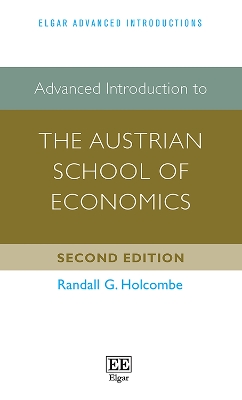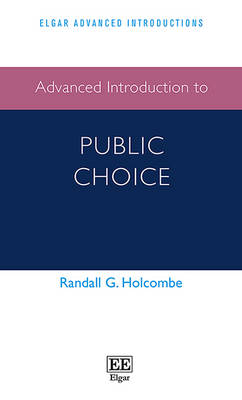Elgar Advanced Introductions
2 total works
Advanced Introduction to the Austrian School of Economics
by Randall G. Holcombe
Featuring fresh and insightful comparisons between the Austrian school and other schools of thought, this enhanced second edition includes an expanded discussion on the evolution of the Austrian school in the 21st century. The Advanced Introduction considers the field's key originators and proponents and reflects on the acceleration in interest in the last two decades.
Key features include:
- An illustration of the key arguments that have defined heterodox economics, including the Austrian school's role in the socialist calculation debate
- In-depth discussions of entrepreneurship and the role of the firm in the scholarship of the Austrian school
- New material relating Austrian economics to other schools of thought.
Undergraduate and graduate students in economics and political science will find this Advanced Introduction indispensable for understanding the revival of the Austrian school. Policymakers will also benefit from its concise and sharp overview of the school and its insights into the key features and debates.
This Advanced Introduction presents a focused narrative about political decision-making based on the work that has defined public choice as a discipline. Randall G. Holcombe emphasizes the theoretical foundations of Public Choice, examining the way that voter preferences are aggregated through democratic decision-making, the way that political exchange leads to the production of public policy, and the way that the constitutional framework within which political activity takes place is designed. He provides a concise discussion of the main models of Public Choice in an engaging manner, giving readers a foundation for understanding the theoretical and empirical work in the field. Each chapter ends with a Notes section that discusses the research on which the chapter is based, with an emphasis on the pioneering work that has shaped the development of Public Choice.
Undergraduate and graduate level students in economics, political science and public administration will find this introduction an essential resource for understanding political decision making. Instructors in those fields will find this book a useful and affordable text and an indispensable resource for teaching Public Choice.

